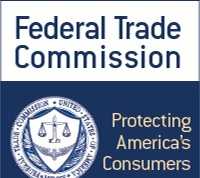Biden-Harris Administration Announces New Investments to Support and Accelerate Community Solar Across America
Over $8 Billion Available Through Prizes, Private Capital, and a Conditional Loan Commitment Will Expand Access to Cheaper, Cleaner Energy for American Families and Deploy Solar Power to Underrepresented Communities
WASHINGTON, D.C. – RealEstateRama – As part of President Biden’s Investing in America agenda, the U.S. Department of Energy (DOE) today announced several new solar energy investments to cut home electricity bills and reduce local pollution. These investments in communities across America will support President Biden’s goals of a 100% clean electricity grid by 2035 and net-zero carbon emissions by 2050. DOE’s National Community Solar Partnership (NCSP) selected 25 teams to participate in the $10 million Community Power Accelerator Prize competition, which aims to establish a strong, nation-wide network of community solar project developers. Successful teams have the potential to deploy as much as 150 megawatts of community solar across the country—enough to power nearly 30 thousand American homes—and access $5 billion in private sector financing through the Community Power Accelerator™. DOE also launched the 2023 Sunny Awards for Equitable Community Solar, which offers $200,000 in prize awards for community solar projects and programs that increase equitable access and ensure benefits—such as greater household savings, good-paying jobs, and enhanced energy resilience—go to subscribers and their communities. Together these programs contribute to the President’s Justice40 initiative to ensure that every community benefits from the clean energy transition and underscores the Administration’s commitment to expanding access to affordable renewable energy across America.
“Ensuring every community has access to the benefits from affordable clean energy resources like solar is key to President Biden’s vision of an equitable clean energy future,” said U.S. Secretary of Energy Jennifer M. Granholm. “With today’s announcements, DOE is providing an exciting new set of tools and important assistance to support solar deployment across the nation so that all communities can enjoy the economic and critical public health benefits that come with deploying renewable energy.”
Later today, Secretary Granholm will highlight the importance of these announcements at an event honoring the 2022 Sunny Awards winners in Washington, D.C. The Secretary will also tout newly announced investments from DOE, including $82 million in selections for research and development projects in solar energy and a $3 billion conditional loan commitment to Sunnova Energy Corporation’s Project Hestia, which aims to expand access to solar in disadvantaged communities. Please click here to watch the event.
Community solar is a form of solar energy generation that allows all community members to access the incredible cost-saving and public health benefits of renewable energy, such as lower utility bills, community ownership and wealth-building, increased energy resilience, equitable workforce development, and low- and moderate-income household access. DOE initiatives like NCSP, the Community Power Accelerator, and the Sunny Awards support the Department’s efforts to ensure organizations and communities across the nation have access to the funding and assistance necessary to develop community solar projects that promote long-lasting and meaningful benefits to the surrounding areas.
Accelerating Equitable Community Solar Deployment
The Community Power Accelerator Prize was designed to better enable community solar developers to learn, grow their operations, and support multiple projects. The prize will foster a robust ecosystem of community solar project developers that incorporate locally centered benefits into projects across the United States. The prize is a critical component of the Community Power Accelerator, a network of developers, investors, philanthropists, and community-based organizations that works together to ensure equitable community solar projects are adequately financed and deployed. Lenders participating in the network have committed to help community-based organizations and other mission-aligned project developers access financing and build community solar projects, particularly in disadvantaged and low-income communities.
The 25 winners will receive a cash prize of $50,000 each, participate in a learning lab, and obtain technical assistance to further scope out their project portfolios to get them ready for financing. At the end of the next phase of the competition, teams will list their projects on the Community Power Accelerator’s online platform, ensuring visibility to the platform’s financing and philanthropic partners. Through this process, the teams will develop skills critical to deploying hundreds of megawatts of equitable community solar, which support the NCSP’s goal of 20 gigawatts by 2025.?The winners span 16 states, the District of Columbia, and Puerto Rico, and will serve diverse types of communities, for example:
- Mana Pacific Inc. (Kihei, HI): A minority, veteran, and woman-owned company with projects designed to achieve 100% ownership by island residents of Moloka’i, the least developed island of Hawaii with the highest poverty rates and highest electricity rates in the country.
- AV3 Energy (Rolla, MO): A new developer, this company created the first community solar program in Missouri and is designed to reduce electricity bills for rural households—unlocking a path for rural and remote Missouri towns to make the switch to solar.
- Orleans Parish School Board (New Orleans, LA): New Orleans Public Schools and their partners aim to expand solar development and create a sustainable school district in a community servicing over 45,000 students, of which over 92% of students are non-white and over 80% are economically disadvantaged.
- People United for Sustainable Housing (Buffalo, NY): A replicable project that supports affordable housing in underserved areas, providing electricity bill savings and job training opportunities for a vast network of community organizations.
- SAGE Development Authority/Standing Rock Sioux Tribe Renewable Energy Power Authority (Fort Yates, ND): A portfolio of projects based around North and South Dakota tribes, leading to a model for community solar development in a new part of the country through tribal development.
View the full list of projects.
Recognizing Best Practices in Community Solar
DOE also opened submissions for its 2023 American-Made Sunny Awards for Equitable Community Solar. In its second year, the Sunny Awards will recognize community solar projects, and state, municipal, Tribal, and utility-led community solar programs that employ best practices in delivering benefits to their subscribers and communities. Applicants will compete for a prize pool of $200,000, including up to five Grand Prize Awards of $10,000 each.
The Sunny Awards is a prize competition that recognizes community solar projects and programs that employ or develop innovative ways to increase equitable access to the cost-saving and public health benefits of community solar.
In the inaugural 2022 Sunny Awards, DOE awarded over 30 community solar projects and programs nationwide, including Grand Prize winners:
- District of Columbia’s Solar for All (Washington, DC): Solar for All is a program designed to reduce electricity bills for households in Washington, DC, through single-family and community solar projects.
- Community Power: Jobs and Savings for LMI Households (Brooklyn, NY): Community Power delivers energy savings to 500 households, provides workforce training, and offers paid jobs to public housing residents.
- Faribault Community Solar (Faribault, MN): The Faribault Community Solar project is a cooperatively-owned community solar array serving mostly low-to-moderate income residents in southern Minnesota.
- JOE-4-SUN Ashland (Ashland, MA): JOE-4-SUN Ashland is a 6 MW community solar project that saves low-to-moderate income households over $400 per year on electricity costs and brings the benefits of clean, renewable energy to a superfund site.
- Shungnak-Kobuk Community Solar Battery Independent Power Producer (Shungnak, AK): This solar and battery project led by the Shungnak and Kobuk tribes in the Northwest Arctic Borough region in Alaska aims to stabilize the cost of electricity and allow the communities to take charge of their energy future.
These five winners will help households achieve a projected combined total savings of $4.3 million on their energy bills. These winning projects and programs provide clean energy access for 7,300 low- to moderate-income households and demonstrate best practices in increasing resilience, expanding community ownership, building a more equitable workforce, and leading community engagement.
Learn more about DOE’s Solar Energy Technologies Office, National Community Solar Partnership, and the Community Power Accelerator.
###












